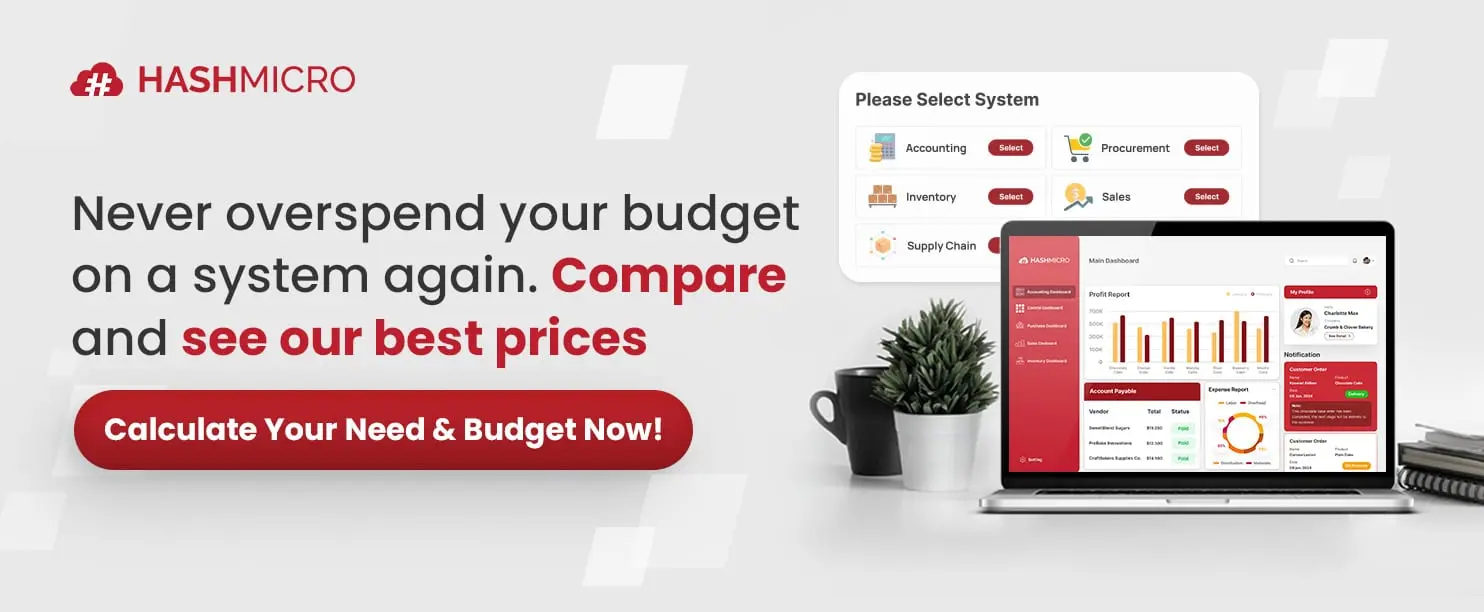Missed deliveries, overstocked warehouses, and rising logistics costs. These are clear signs your distribution strategy might be holding your business back. That’s where distribution planning software proves its value.
These solutions are designed to help businesses forecast demand, manage inventory efficiently, optimize delivery routes, and gain better visibility across the entire supply chain. For Malaysian companies looking to grow and compete smarter, choosing the right software isn’t just about automation, it’s about unlocking long-term efficiency and profitability.
In this article, we’ll walk you through 10 top distribution planning software options that are well-suited for the Malaysian market. Keep reading to discover which one aligns best with your business goals.
Key Takeaways
|

What is Distribution Planning Software?
Distribution planning software is a comprehensive business tool that helps companies strategically manage the flow of products from production facilities or warehouses to their final destinations.
It integrates key supply chain functions, including inventory control, demand forecasting, transportation planning, and order fulfilment, to support a distribution business for fast-moving goods.
By automating and optimizing these processes, the software enables businesses to reduce delays, minimize excess inventory, lower operational costs, and enhance customer satisfaction across the board.
Benefits of Using Distribution Planning Software
For businesses seeking to remain competitive, the ability to plan, adapt, and deliver efficiently is crucial. Distribution planning software directly supports these goals by offering the following high-impact benefits:
- Reduced Operational Costs: By automating key processes, such as route planning, inventory allocation, and order scheduling, businesses can significantly reduce labor, transportation, and storage expenses.
- Faster Response to Market Changes: With real-time data and predictive insights, companies can quickly adapt to shifts in demand, supply disruptions, or urgent customer needs, thereby avoiding lost sales and stock imbalances.
- Higher Customer Satisfaction: Reliable delivery times, accurate order fulfillment, and consistent stock availability lead to stronger customer trust and repeat business.
- Data-Driven Decision Making: Centralized dashboards and performance analytics empower managers and executives to make informed, timely decisions based on actual supply chain performance, rather than relying on intuition or guesswork.
- Inventory Optimization: The software helps maintain optimal stock levels at the right locations, reducing excess inventory and minimizing the risk of stockouts that can harm sales and brand reputation.
10 Top Distribution Planning Software Options for Malaysian
With numerous tools available, selecting the right solution can be a daunting task. To make your decision easier, here are 10 top distribution planning software options trusted by Malaysian businesses.
1. HashMicro Distribution Planning Software
HashMicro, established in 2015 in Singapore, has quickly grown into one of Southeast Asia’s most trusted providers of cloud-based ERP solutions. Its distribution planning software is specifically designed for businesses that want to automate and optimize their inventory, order, and logistics processes.
With a strong presence in Malaysia HashMicro supports local wholesale distributors by offering scalable tools that reduce manual work, improve visibility, and enhance delivery accuracy.
It also seamlessly integrates with logistics software and distribution barcode systems, making it a well-rounded choice for companies aiming for greater efficiency and growth.
Key features:
- Smart Product Suggestions: Increase revenue by presenting customers with relevant add-on product recommendations during the buying process.
- Real-Time Stock Movement Tracking: Automatically monitor inventory transfers between locations with up-to-date tracking.
- Automated Inventory Optimization: Use data-driven forecasting to maintain ideal stock levels across all branches.
- Comprehensive Sales Channel Insights: Access detailed reports to identify which sales platforms contribute most to product performance.
|
Pros |
Cons |
|
|

2. SafetyCulture Distribution Planning Software
SafetyCulture provides a centralized platform for overseeing logistics operations, enabling full visibility across product distribution activities.
It supports managerial control by offering tools to monitor processes and access operational data. The system is designed to scale, with adjustable features that align with evolving business requirements.
Key features:
- Asset tracking with QR codes
- Digital safety checklists
- Internal communication tools
|
Pros |
Cons |
|
|
3. Fishbowl Cloud Based Distribution Planning Software
Founded in the U.S., Fishbowl has become a favorite for small to medium businesses needing inventory and manufacturing solutions. Fishbowl is also widely used by Malaysian distributors seeking reliable inventory management tools.
Key features:
- Monitoring and managing inventory levels
- Processing and fulfilling customer orders
- Setting restock thresholds with automated replenishment
|
Pros |
Cons |
|
|
4. Dolibarr Distribution Planning System
Dolibarr is an open-source ERP and CRM software that originated in France and has grown through community-driven development.
It’s ideal for small businesses needing flexibility in distribution and inventory management. Its simplicity makes it accessible to Malaysian SMEs venturing into logistics software.
Key features:
- Lots and serial management
- Order approving and purchasing recording tools
- Invoicing and accounting
|
Pros |
Cons |
|
|
5. Cin7 Distribution Planning System
Cin7 was developed to support seamless coordination across core business systems, particularly within inventory and distribution networks. It brings together product, order, and channel data in one place, helping businesses manage operational processes with greater alignment.
With consistent updates since its launch in 2012, Cin7 continues to serve a wide range of product-based companies in Malaysia and beyond.
Key features:
- Batch and expiration tracking
- Multi-channel selling integration
- Cost accounting
|
Pros |
Cons |
|
|
6. Extensive Distribution Management Software
Extensiv serves as a comprehensive solution for overseeing order processes and supporting effective fulfillment operations.
Designed to streamline distribution workflows, it automates critical tasks such as inventory control and order handling making it well-suited for businesses aiming to scale their distribution strategies efficiently.
Key features:
- Inventory forecasting
- Shipping and logistics management with various carrier partners
- Order processing and fulfillment
|
Pros |
Cons |
|
|
7. Logility Distribution Planning Software
A U.S.-based leader in supply chain optimization, Logility has been serving global enterprises for decades.
Known for its advanced AI-powered forecasting and planning, it’s a strong choice for large Malaysian businesses in need of sophisticated logistics software. Logility helps companies reduce waste and optimize fulfillment.
Key features:
- Scenario forecasting and planning
- Inventory optimization
- AI-powered analytics and estimates
|
Pros |
Cons |
|
|
8. E2open Distribution Planning System
E2open is a global connected supply chain platform headquartered in the U.S., offering end-to-end visibility and coordination.
It provides smart solutions for distribution and logistics, and has been adopted by major brands worldwide. Its robust wholesale distribution software tools are highly scalable.
Key features:
- Multi-enterprise collaboration tools
- Inventory and logistics planning
- Real-time supply chain monitoring
|
Pros |
Cons |
|
|
9. Relex Solutions
Relex, founded in Finland, focuses on unified retail planning and supply chain optimization. It’s popular among retailers and wholesalers aiming to enhance forecasting and product availability. In Malaysia, it’s gaining traction for its retail-focused logistics software functions.
Key features:
- Automated inventory optimization
- Support for wholesale distribution software
- Scalable and cloud-native platform
|
Pros |
Cons |
|
|
10. NetSuite Distribution Planning Software
NetSuite, a part of Oracle, is a globally recognized ERP system with powerful distribution planning features. Used by thousands of organizations worldwide, it supports comprehensive inventory, financials, and logistics software needs. It’s particularly effective for growing enterprises in Malaysia.
Key features:
- Integrated distribution barcode software
- Wholesale distribution software modules
|
Pros |
Cons |
|
|
How to Choose the Right Distribution Planning Software for Your Business
With so many distribution planning tools available in the market, selecting the right one for your business can feel overwhelming.
The ideal software should align with your operational needs, scale with your growth, and integrate seamlessly with your existing systems. Here are several key factors to guide your decision-making process and help ensure long-term success.
- Business Size and Complexity: Consider whether the software can handle the volume, number of SKUs, and logistical requirements specific to your operations.
- Feature Compatibility: Make sure the platform includes essential tools like inventory management, order tracking, demand forecasting, and barcode integration.
- Integration Capabilities: Check how well the software connects with your existing ERP, CRM, accounting, and logistics systems.
- Scalability: Choose a solution that can grow with your business and support future expansion, whether regional or global.
- User Experience and Training: A user-friendly interface and accessible onboarding resources can significantly reduce implementation time and increase adoption across teams.
- Vendor Support and Updates: Reliable customer service, regular software updates, and local support are critical for long-term efficiency and issue resolution.
Conclusion
Selecting the right distribution planning software is more than just comparing features, it’s about finding a solution that aligns with your business goals, supports efficient logistics, and scales as your operations grow.
From small-scale distributors to large enterprises, the ten options we’ve explored offer a range of capabilities designed to meet different needs in the Malaysian market. If you’re seeking a robust, customizable platform with localized support and a strong track record across Southeast Asia, HashMicro is worth serious consideration.
Their solution is especially suitable for businesses aiming to automate workflows and optimize supply chain visibility. To see how it can support your distribution strategy, you can request a free demo and experience the platform firsthand.

FAQ Distribution Planning Software
-
What is supply chain software called?
Supply-chain-management software (SCMS) is the software tools or modules used in executing supply chain transactions, managing supplier relationships and controlling associated business processes.
-
What are the 5 basic components of SCM?
The five most critical phases of SCM are planning, sourcing, production, distribution, and returns. A supply chain manager is tasked with controlling and reducing costs and avoiding supply shortages.
-
What does a distribution planner do?
A Distribution Planner is responsible for coordinating the efficient movement of goods from suppliers to warehouses, retailers, or customers.





























